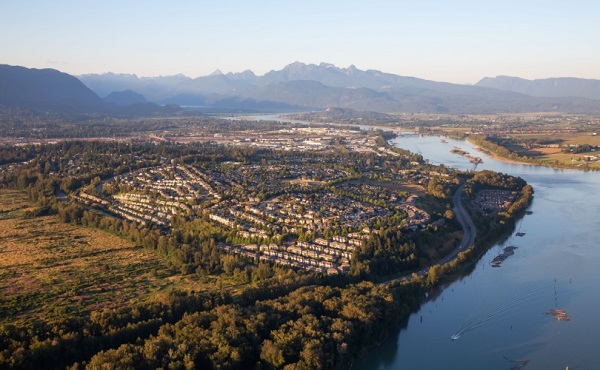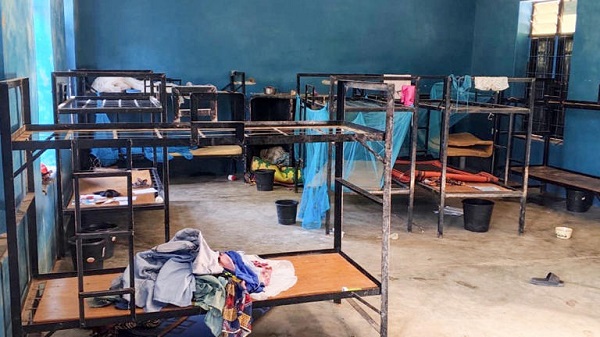Opinion
A rural response to Gerald Stanley’s acquittal from a Saskatchewan farmer..

As a person who lives on a farm in rural sask. I can offer the following insights into rural realities. I only speak for myself and my family. I don’t claim to know what I would or wouldn’t do if I was in the Stanley’s situation, nor if I was in that vehicle with Colton. I hope I never have to find out. I don’t know what life is like on farms in other places, I can’t speak to that.
I can only offer what knowledge I have of rural life…
1. If you live on a farm you are responsible for everything yourself. Snow removal, garbage disposal, water, sewer, security and safety. If your house starts on fire it’s very unlikely that the FD will arrive in time to save it. If you have a heart attack it’s very unlikely that the EMTs will arrive in time to save you. And if your family is attacked it is very unlikely that the RCMP will arrive in time to save you. You are basically on your own. I don’t feel that to say that the Stanleys could have locked themselves in the house and called the police is very reasonable. They weren’t in the house, they were all over the yard. Maybe their door didn’t even lock. Had they been in the house already they may have just hid there like their neighbor did. We can’t know either way. And where I live the earliest RCMP response would be greater than 30 mins. A lot can happen in 30 mins.
2.Anyone who enters a farmer’s property with the intent to steal from or threaten the occupants should be aware of the likely presence of weapons. All of the farmers I know have guns. More than one. Some have many. They aren’t solely or primarily for protection from would be thieves or attackers. some people collect guns, some people enjoy target shooting or hunting. On a farm it is pretty much necessary to have a gun. Where we live there are coyotes, raccoons, cougars, wolves, wild boars etc. An aggressive or rabid animal can attack your family dogs or a beloved animal may be injured or sick and need your mercy. It’s just a rural reality. But a gun can kill people just as easily as animals so everyone should just be aware that on farms there are usually guns.
3. The reasons farmers are easy targets for crime are the very same reasons they are often forced to deal with it on their own. Essentially no effective police response and isolation.
I don’t live in an area with a lot of rural crime. We’ve been robbed before and neighbors have had vehicles stolen and equipment vandalized but I would not say it’s a regular occurrence. Regardless, I have fears. I fear that this far from town someone will get injured or have a heart attack so I have our land location written by the phone and I took CPR. I fear that a snowstorm will take out our power and block our roads so we have a genset and snow moving equipment. I fear that our sewer will back up so we have an alarm and an extra pump. And I fear that if someone came into my yard with the intent or ‘the perceived intent’ to hurt my family the police would be of no help. So we have dogs, and locks on all our doors. And guns. And when guns get involved people can get hurt or killed. My point is we have to take extra precautions for things that urban people are comfortable letting ‘the professionals’ handle. Most farmers, most men actually, will do what they feel is necessary to protect their families and deal with the consequences later. No one wants to be in that position but when you live on a farm you are. You can not depend on anyone else to protect you or save you.
When people are intoxicated their judgement is impaired and they do not act or react in a predictable way. And it is safe to say when people are scared their judgement is impaired and they do not act or react in a predictable way. It’s very unfortunate that this tragedy happened at all and I feel terribly sad for all involved.
Regan from Saskatchewan
Alberta
New pipeline from Alberta would benefit all Canadians—despite claims from B.C. premier

From the Fraser Institute
The pending Memorandum of Understanding between the Carney government and the Alberta governments will reportedly support a new oil pipeline from Alberta’s oilsands to British Columbia’s tidewater. But B.C. Premier David Eby continues his increasingly strident—and factually challenged—opposition to the whole idea.
Eby’s arguments against a new pipeline are simply illogical and technically incorrect.
First, he argues that any pipeline would pose unmitigated risks to B.C.’s coastal environment, but this is wrong for several reasons. The history of oil transport off of Canada’s coasts is one of incredible safety, whether of Canadian or foreign origin, long predating federal Bill C-48’s tanker ban. New pipelines and additional transport of oil from (and along) B.C. coastal waters is likely very low environmental risk. In the meantime, a regular stream of oil tankers and large fuel-capacity ships have been cruising up and down the B.C. coast between Alaska and U.S. west coast ports for decades with great safety records.
Next, Eby argues that B.C.’s First Nations people oppose any such pipeline and will torpedo energy projects in B.C. But in reality, based on the history of the recently completed Trans Mountain Expansion (TMX) pipeline, First Nations opposition is quite contingent. The TMX project had signed 43 mutual benefit/participation agreements with Indigenous groups along its route by 2018, 33 of which were in B.C. As of March 2023, the project had signed agreements with 81 out of 129 Indigenous community groups along the route worth $657 million, and the project had resulted in more than $4.8 billion in contracts with Indigenous businesses.
Back in 2019, another proposed energy project garnered serious interest among First Nations groups. The First Nations-proposed Eagle Spirit Energy Corridor, aimed to connect Alberta’s oilpatch to a port in Kitimat, B.C. (and ultimately overseas markets) had the buy-in of 35 First Nations groups along the proposed corridor, with equity-sharing agreements floated with 400 others. Energy Spirit, unfortunately, died in regulatory strangulation in the Trudeau government’s revised environmental assessment process, and with the passage of the B.C. tanker ban.
Premier Eby is perfectly free to opine and oppose the very thought of oil pipelines crossing B.C. But the Supreme Court of Canada has already ruled in a case about the TMX pipeline that B.C. does not have the authority to block infrastructure of national importance such as pipelines.
And it’s unreasonable and corrosive to public policy in Canada for leading government figures to adopt positions on important elements of public policy that are simply false, in blatant contradiction to recorded history and fact. Fact—if the energy industry is allowed to move oil reserves to markets other than the United States, this would be in the economic interest of all Canadians including those in B.C.
It must be repeated. Premier Eby’s objections to another Alberta pipeline are rooted in fallacy, not fact, and should be discounted by the federal government as it plans an agreement that would enable a project of national importance.
Indigenous
Canadian mayor promises to ‘vigorously defend’ property owners against aboriginal land grab

From LifeSiteNews
Port Coquitlam, British Columbia, is fighting a Kwikwetlem First Nation’s claim that, if successful, would see aboriginals in essence be given large swaths of land owned by the city.
A Canadian mayor said he will “vigorously defend” the property rights of residents in light of a recent court ruling that gave a portion of a municipality to aboriginals via a title claim they won in court.
Mayor Brad West of Port Coquitlam, British Columbia, vowed to residents, “We have, and will continue to, vigorously defend public ownership of these lands, along with private property rights in our jurisdiction.”
“We will ensure the public is kept informed,” he promised in a post on X.
Port Coquitlam is fighting a Kwikwetlem First Nation’s claim made in 2016 that, if successful, would see the aboriginals in essence be given large swaths of land owned by the city.
The city said that at this time that there are “no civil claims initiated by any First Nations involving private property within the City of Port Coquitlam.”
The city promised in a statement that if the changes are made, it will notify residents immediately.
“While the City recognizes public concern resulting from recent media coverage of the Cowichan/Richmond case, it is important to note that no private lands within Port Coquitlam are currently the subject of litigation,” the statement read.
West’s comments come in light of a recent court ruling in British Columbia affecting property rights, Cowichan Tribes v. Canada (Attorney General), which saw the provincial Supreme Court rule that decades-long land grants by the government were not valid and violated a land title held by the tribes.
The ruling included large parts of Richmond, British Columbia, which is in the Vancouver area, essentially given to local tribes.
There are many other similar legal battles taking place in British Columbia, which, unlike the rest of Canada, has no official treaties in place with local Indigenous peoples but only agreements without legal clarity.
As reported by LifeSiteNews, John Carpay, founder and president of the Justice Centre for Constitutional Freedoms (JCCF), noted the court “told the people (of various ethnicities) who live in some parts of Richmond, B.C., that the money they paid for their own properties does not guarantee them the right to own and enjoy their own homes.”
Carpay noted that “the fact that aboriginal ethnic groups arrived in Canada earlier than other ethnic groups should be completely irrelevant when it comes to the application of the law.”
“Nobody disputes that different aboriginal tribes lived in this land before the arrival of Europeans, Africans, and Asians. The question is: Why should this fact matter?” he noted.
Carpay observed that when officials and courts apply the “law” differently to come after “Canadians because of their race, ancestry, ethnicity, or descent,” the predictable and inevitable outcome “is strife, resentment, and fear.”
-

 Alberta2 days ago
Alberta2 days agoPremier Smith explains how private clinics will be introduced in Alberta
-

 Censorship Industrial Complex2 days ago
Censorship Industrial Complex2 days agoUK Government “Resist” Program Monitors Citizens’ Online Posts
-

 Business2 days ago
Business2 days agoUS Supreme Court may end ‘emergency’ tariffs, but that won’t stop the President
-

 Bruce Dowbiggin2 days ago
Bruce Dowbiggin2 days agoElbows Down For The Not-So-Magnificent Seven: Canada’s Wilting NHL Septet
-

 Alberta2 days ago
Alberta2 days agoAlberta introducing dual practice health care model to increase options and shorten wait times while promising protection for publicly funded services
-

 International2 days ago
International2 days ago“The Largest Funder of Al-Shabaab Is the Minnesota Taxpayer”
-

 International2 days ago
International2 days ago50 of the 315 students and 12 staff abducted from Catholic school in Nigeria last week have escaped
-

 espionage1 day ago
espionage1 day agoSoros family has been working with State Department for 50 years, WikiLeaks shows






